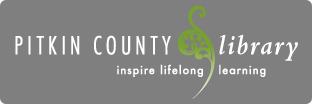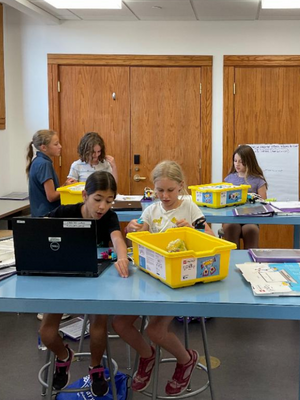Girls Who Code
Girls Who Code was designed as an afterschool program to encourage girls to learn about computer science and coding. Over the years it has turned into something much more. It is a sisterhood where young women are supporting one another to be brave, resilient, and innovative. By encouraging them to ask questions, make mistakes, and learn from each other. Pitkin County Library's Girls Who Code Club was started in 2020.
The coding club is for grades 3-5.
No coding experience needed, all levels welcome!
Learn more about the Girls Who Code Club.
Girls Who Code, Aspen Film Camp 2022 Video
In summer of 2022, Aspen Film Camp made a video about our Girls Who Code program. We are so thankful for their work and proud of those who were interviewed!
Coding Resources
Learn how to code on your own time using these free resources. Whether it is on your smartphones, or your computer at work, coding and computer science is a part of everything we do. With these platforms you can learn to create your own app, code your own games, design digital art and so much more! Inspire lifelong learning by discovering a new skill!
Code.org
Code.org is a nonprofit dedicated to expanding access to computer science and increasing participation by young women and students from other underrepresented groups. Their vision is that every student in every school has the opportunity to learn computer science as part of their core K-12 education (Code.org About Us page).
Creative Coding
Learning creative coding with p5.js! p5.js is a JavaScript library for creative coding focused on making coding accessible and inclusive for artists, designers, educators, beginners, and anyone else! p5.js is a free and open-source resource as they believe software, and the tools to learn it, should be accessible to everyone (p5.js Home page).
PRENDA
Prenda works with libraries to empower youth with coding education. They provide coding software, clubs, and competitions (Prenda Home page). If you'd like to create club contact Makerspace Librarian, Shannon Foster for details.
Processing
Processing is a flexible software sketchbook. It is a language for learning how to code within the context of the visual arts. Processing has promoted software literacy within the visual arts and visual literacy within technology. Tens of thousands of students, artists, designers, researchers, and hobbyists use Processing for learning and prototyping (Processing Home page).
Scratch
Program your own interactive stories, games, and animations with Scratch. Scratch helps young people learn to think creatively, reason systematically, and work collaboratively. Scratch is designed, developed, and moderated by the Scratch Foundation and is free! (Scratch About page).
Girls Who Code Resources
Algorithmic Justice League
The Algorithmic Justice League (ajl) is an organization that combines art and research to illuminate the social implications and harms of artificial intelligence. Their mission is to provide equitable and accountable AI (Algorithmic Justice League About page).
Think Like a Coder
Think Like a Coder is an animated series that uses a story of a coder trying to save the world to highlight coding lessons and skills. This series is available on YouTube through TED-Ed.
Contact
Grace Hancock, Early Literacy Librarian
[email protected] or 970-429-1930

